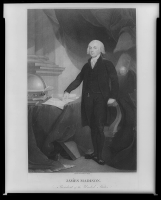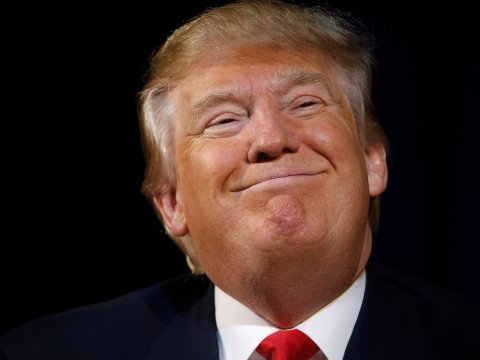Posted on January
18, 2021
It's Alive!
Is the Constitution making a comeback?
by
Daniel
Clark
When liberals refer to the Constitution of the United
States as a living document, what they're saying is that its meaning changes
spontaneously over time without having to go through the prescribed amendment
process. We are now watching that
argument be utterly refuted, as our Constitution refuses to bend to the wishes
of the individual interpreter.
Ironically, it is proving that it's alive, as in simply not dead, to the
dismay of those who embrace the "living Constitution" paradigm.
In the waning weeks of the Trump administration, a
fissure developed at its uppermost levels when President Trump instructed Mike
Pence to disallow the electoral votes from those states whose election results
had been disputed. The vice president
refused to do so, for the refreshingly sane reason that the Constitution did
not empower him to do any such thing.
The Twelfth Amendment says the president of the Senate (which is the
vice president, when present), "shall, in the presence of the Senate and House
of Representatives, open all the certificates and the votes shall then be
counted." Nothing about this is
optional.
 Trump
and the legal advisors who assured him this could be done cannot possibly have
believed their own argument. Had they
followed their imaginary scenario through to its conclusion, they would have realized
that such a conspicuous conflict of interest would never have survived the open
debate of the constitutional amendment process.
Not only would the vice president have a partisan motive to maintain
perpetual one-party rule, but the potential for personal aggrandizement could
not be more obvious. Al Gore could have
denied Florida's electoral votes in January of 2001, preventing George W. Bush
from taking office, and the Republicans would have been powerless to stop him.
Trump
and the legal advisors who assured him this could be done cannot possibly have
believed their own argument. Had they
followed their imaginary scenario through to its conclusion, they would have realized
that such a conspicuous conflict of interest would never have survived the open
debate of the constitutional amendment process.
Not only would the vice president have a partisan motive to maintain
perpetual one-party rule, but the potential for personal aggrandizement could
not be more obvious. Al Gore could have
denied Florida's electoral votes in January of 2001, preventing George W. Bush
from taking office, and the Republicans would have been powerless to stop him.
There's nothing in the Twelfth Amendment that compels
the participation of the vice president in the process. Had Pence refused to count certain electoral
votes, he would no longer have been acting as president of the Senate, and the
count would have continued under the direction of the president pro tempore. What else was the veep
to do, shackle himself to the podium and dare the Capitol police to remove him?
In the aftermath of the Capitol riot, House Democrats
passed a nonbinding resolution calling on Pence to remove Trump from office by
invoking the Twenty-Fifth Amendment.
Where have so many people suddenly gotten the idea that the vice
president, of all people, wields absolute, extraconstitutional powers?
Once again, Pence has proven to be a pillar of
stability against the competing lunacies that swirl within the beltway. Upon rejecting this demand, he explained that
the process described in the amendment is not meant to be used punitively, and
he's right. Section 4 requires the vice
president and a majority of the cabinet to transmit to Congress "their written
declaration that the President is unable to discharge the powers and duties of
his office." This is meant for a case in
which the president has literally been incapacitated, not just in which his
judgment has been called into question.
 All
the president would have to do to nullify this action is send his own statement
to Congress asserting his continued ability to discharge his powers and
duties. A two-thirds majority vote in
each house of Congress would then be needed to secure his removal. The extreme unlikelihood of this is not
accidental. The Twenty-Fifth Amendment
is not, and was never meant to be, a license to mutiny.
All
the president would have to do to nullify this action is send his own statement
to Congress asserting his continued ability to discharge his powers and
duties. A two-thirds majority vote in
each house of Congress would then be needed to secure his removal. The extreme unlikelihood of this is not
accidental. The Twenty-Fifth Amendment
is not, and was never meant to be, a license to mutiny.
Perhaps the dumbest affront to the Constitution so far
in 2021 is the Democrats' expectations for their eleventh-hour, drive-through
impeachment of President Trump. There's
nothing constitutionally wrong with their having impeached him, since he was still
in office at the time, but they already knew that the Senate would remain in
recess until the day of Joe Biden's inauguration. Why bother with an impeachment trial for a
president won't even be there when it's over?
Article I Section 3 of the Constitution allows the
sentencing of an impeached president to include "disqualification to hold and
enjoy any Office of honor, Trust or Profit under the United States." The Democrats aim to use the impeachment to
prohibit Trump from running for president again in 2024. What's standing in their way is Article II
Section 4, which says that he "shall" be removed from office upon conviction in
his impeachment trial.
There's that confounded s-word again, establishing
that the rules are not arbitrary. If
Trump has already left the presidency, the Democrats are unable to do the one
thing they must do upon
conviction. Therefore, there can be no
conviction upon which they may tack on the addition penalty of future
disqualification. This constitutional
reality has already got them floating a Plan B, by which they would forbid
Trump from running again by declaring him to have engaged in an act of
insurrection or rebellion, in accordance with the Fourteenth Amendment. If they find that to be a comparatively
viable option, their plan to convict a former president in absentia has already
been defeated.
Based on the events of 2020, it may be easy to adopt
the perception that our Constitution is dead, the iconoclasts have won, and
America is spiraling toward oblivion. To
put it mildly, all has not gone well so far in 2021, either. Where the Constitution is concerned, however,
the early results are encouraging. It is
being demonstrated before everyone's eyes that the Constitution has a real-world
presence that cannot simply be redefined away by clever wordplay and poststructuralist
sophistry. Otherwise, it would not now
be thwarting the whimsical power plays of political leaders who would like to
rewrite the rules on a day-to-day basis.
But that's not the half of it. National conversations are taking place about
the actual language of the Constitution, who put it there and why, whether it
would be a good idea to change it, and what is necessary to accomplish
that. People are looking up various
articles and amendments who otherwise might never have felt inclined to do
so. Not only is the document not
outdated, but it is now presenting itself as our most effective tool to combat
the chaos that has engulfed us. That
realization cannot help but engender a greater appreciation for the wisdom
behind our Constitution, and the genius of the invention that is the United
States of America.
The Shinbone: The
Frontier of the Free Press